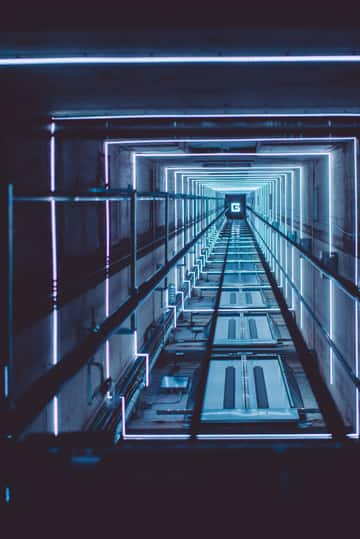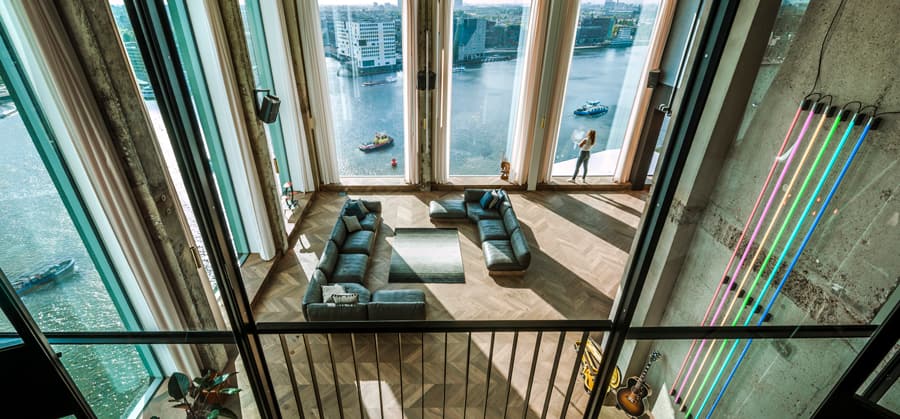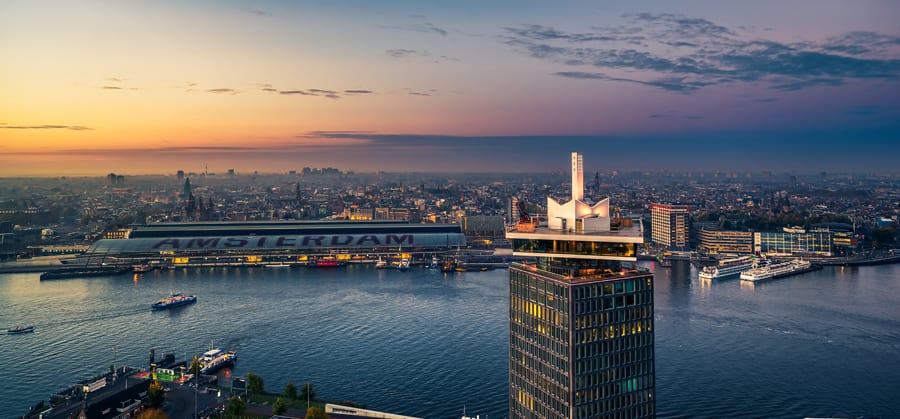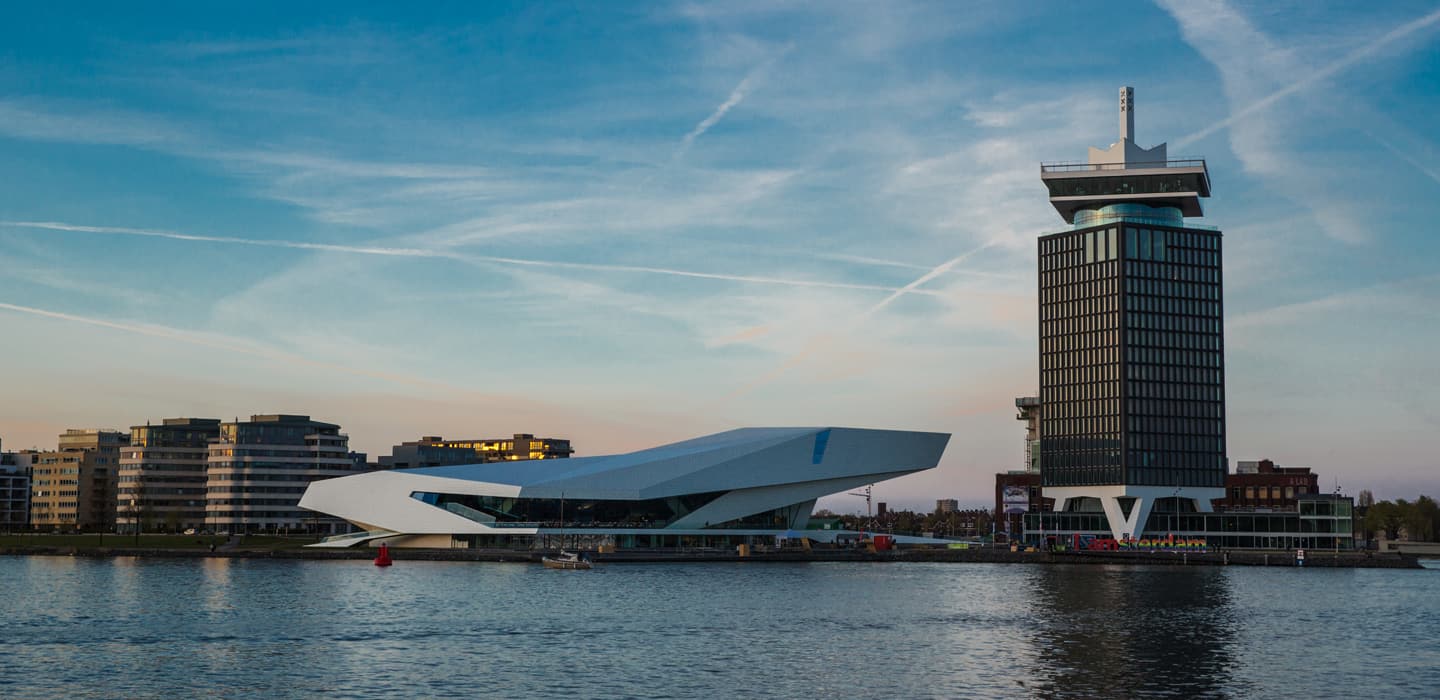
Text: Thessa Lageman
When you step into the ‘experience’ elevator in the iconic A’DAM tower, the lights turn off, and electrifying music starts to play. Then, the all-glass elevator shoots up. In the 22 seconds before you reach the 20th floor, you are treated to a colorful light show perfectly synchronized with music. And once you reach the top, you gaze in awe at the unrivaled panoramic view of Amsterdam from the observation deck, called the Lookout.
“The ride up is part of the experience. People love it,” says Eric-Jan de Rooij, partner at Lingotto, the company which (developed and) manages the 100-meter-tall tower. A’DAM originally started life in 1971 as ‘Toren Overhoeks.’ Located just across the harbor from the Central Station, it was once part of a private complex of laboratories, offices and buildings. When city authorities rezoned the area for both commercial and residential development, this tower turned into prime waterfront property almost overnight, and was among the first buildings here to be redeveloped.
Amsterdam’s newest social hub

The new name A’DAM is the abbreviation of Amsterdam and also stands for ‘Amsterdam Dance and Music,’ which reflects the business of the owners and main tenants. It has become a major tourist destination containing top-notch bars, restaurants, offices, a hotel and of course the wildly popular spectacular observation deck.
“We wanted the building to be like a festival, a great experience,” explains de Rooij. Two years of renovations were needed to turn the 1970s interiors into a more contemporary, stylish, and sustainable design while maintaining its celebrated modernist complexion. “However, there were quite a ´few challenges in terms of logistics, fire safety, ventilation, and electronics,” adds de Rooij.¨
Originally a mono-functional office tower for 350 employees, A’DAM is a multi-functional building now, visited by around 3,000 people each day, nearly 10 times the number it was originally designed for. In order to handle these capacities, the developers decided to completely modernize the elevator management and destination control systems. A task for which they turned to KONE.
“The biggest challenge we had to deal with in transforming the office building into a vertical one was logistics. The developers had many creative ideas which they wanted to see in action. Add to this the fact that there were so many people using the building and relatively few elevators. We had to look at out-of-the-box solutions for this project,” explains Mike deWit, project manager at KONE.
Creating tailor-made experiences

The first basic step was to expand the number of elevators available. In the past, there were only four elevators in the core to give access to all of the tower floors. Now there are five in the core and they are mainly used to carry people. Another five extra elevators have been added outside the core to connect the parking, the club, the basement and two small kitchen elevators.
Next was to customize the design of each elevator. Public elevators were given different themes – while one was designed as a disco elevator, another was equipped with cool music and changing colors. Some elevators contained large photo s and art images and others had prints of song texts and matching psychedelic music. Many nonstandard details, such as the elevator’s push buttons that are in the same diamond shape as the A’DAM logo, were added too.
In addition to all this, we deployed our People Flow Intelligence systems to ensure smooth movement of people inside the tower. For instance, our Access and Destination Control system was introduced in the building to minimize unnecessary stops. This was done by allowing users to have access passes for specific floors only. The usage patterns of the elevators were tracked using our advanced E-link monitoring system, which continuously collects relevant data.
“We analyze these data regularly and discuss them with the developers each month. This helps us make improvements when needed. What we did in A’DAM can be used as a model in other buildings, as well,” deWit says.
Together, A’DAM and our solutions are a shining example of what can be achieved using state-of-the-art technology, while breaking away from convention.
